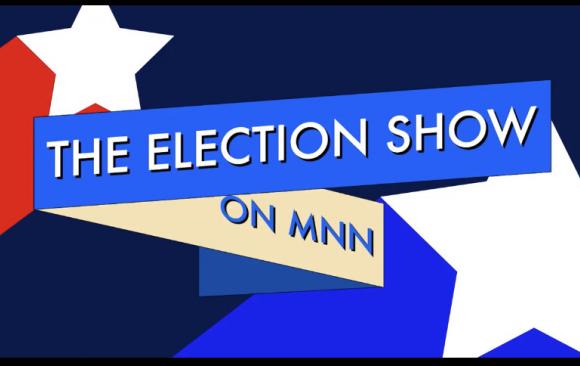


America's COVID-19 death toll crossed the 100,000 mark this week, a mere 10th weeks after the novel coronavirus began to spread across the country. Now as states begin to re-open, how fast will that number grow? And how will the deaths of more than 100,000 Americans impact Donald Trump’s reelection chances? A blog by Lincoln Mitchell, Columbia University professor, political analyst, pundit, writer and co-host of "The Election Show on MNN".
As summer approaches many parts of the country are slowly, or in some cases not so slowly, opening up again. The destruction and death caused by the Coronavirus is said to be slowing down as well. These are both welcome and encouraging pieces of news, but from a political perspective we can still ask how the deaths of 100,000 Americans will impact Donald Trump’s reelection chances. However, that is the wrong question to ask because by the November 3rd election the number deaths in the US will, even if things go relatively well, almost certainly be double that.
The numbers on this are relatively clear. As of June 1st there will be 100,000 Covid-19 deaths in the US. That is a low estimate, but it keeps the math simple. There are 150 days between June 1st and October 31st. If 750 people die every day between now and then, an ambitious but reachable low goal if good health protocols are followed and we get a bit lucky, that will mean 112,500 additional deaths. However, if the average number of deaths a day goes up to 1,000, that will mean 150,000 additional deaths. Therefore, 200,000 deaths by the election is almost inevitable.
One of the many lessons the Coronavirus has taught us is that when it comes to this pandemic, we are surrounded by uncertainty, so we can hope that number is much smaller, while also fearing it will get even higher. Accordingly, it is important to remember how much we don't know about the #Coronavirus, but probably not a wise idea to build public health policy around shrugging our shoulders and hoping for the best. When you peel away the cruelty, erratic behavior and bizarre statements, that has essentially been Donald Trump’s approach to fighting the virus.
Trump’s #reelection hopes therefore rests on his ability both to persuade #voters that 200,000 or more deaths from Covid-19 by #Election Day aren’t so much and that his response to the crisis saved lives and limited the impact of the pandemic. Covid-19 is a deadly disease that has confounded scientists, health care providers and public health experts, to it is not fair to blame Donald Trump for all of those deaths, but nobody has really suggested that. The question with which voters will have to wrestle when choosing whether or not give Trump another term is whether it had to be quite this bad. Trump has made the answer clear to the voters over the course of the months he has spent minimizing the threat of the virus, proposing bizarre medical interventions to combat it, ignoring the advice of medical experts and lying about things like the availability of tests.
The pandemic has dramatically changed Trump’s reelection chances. In January, the race looked to be close, but many thought Trump was the slight favorite. Today, #JoeBiden is the clear favorite in the race. While this may be good news to #Democrats, this should be tempered by Donald Trump’s reaction this shift in the political winds. We have already seen how #DonaldTrump has reacted to this news by lashing out at his political foes even more than usual, fabricating scandals involving the previous administration, preemptively raising doubts about the outcome of the election and laying the groundwork for refusing to accept the results if he loses. All of this is a reminder that the struggle to defeat Trump in 2020 remains, at its core, a struggle for democracy.
Lincoln Mitchell, is a Columbia University professor, political analyst, pundit, writer and co-host of "The Election Show on MNN".
Watch this Sunday and Wednesday at 9:30pm only on MNN1 (Spectrum 34 & 1995, RCN 82, FiOS 33) or MNNHD (Spectrum 1993).